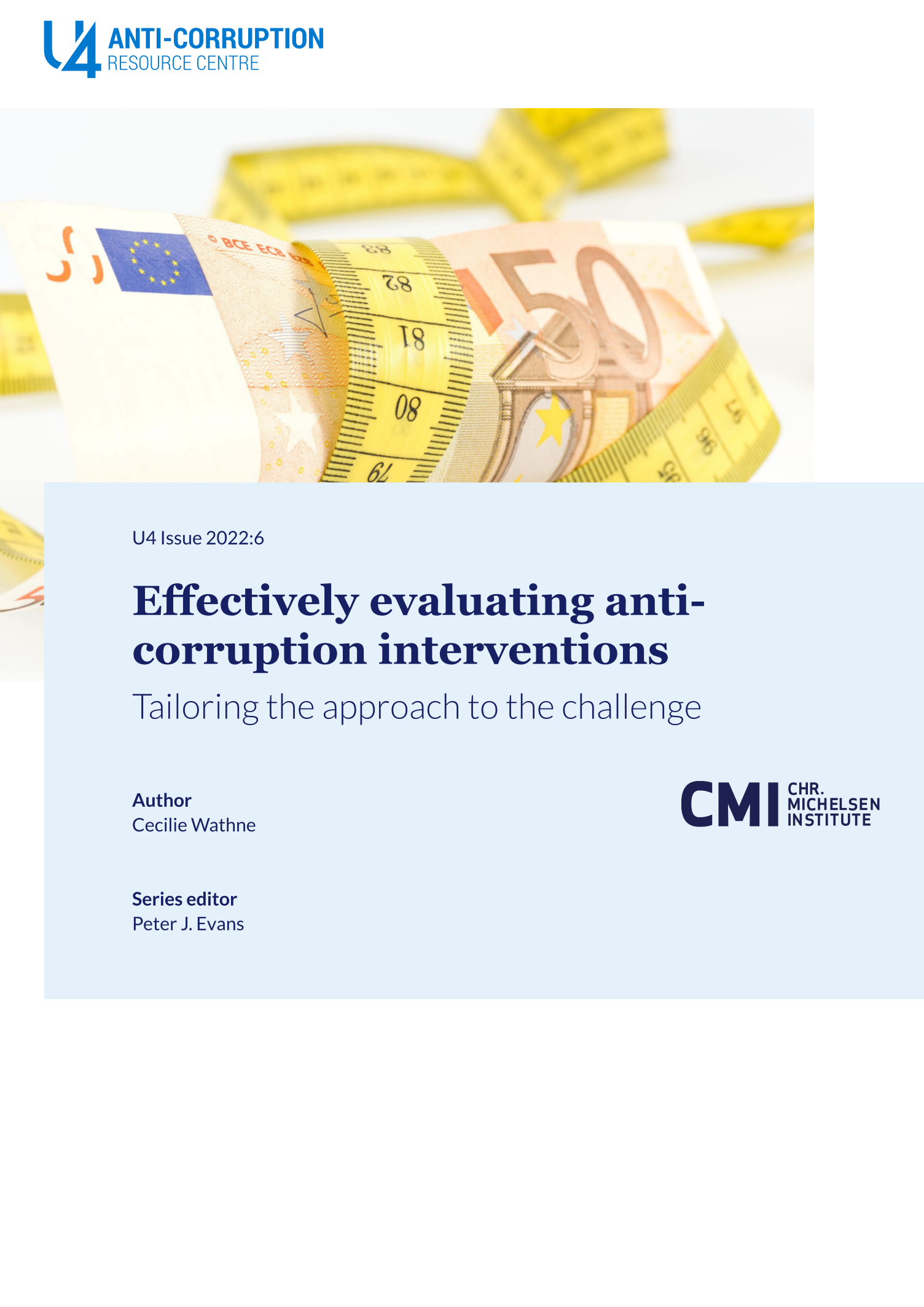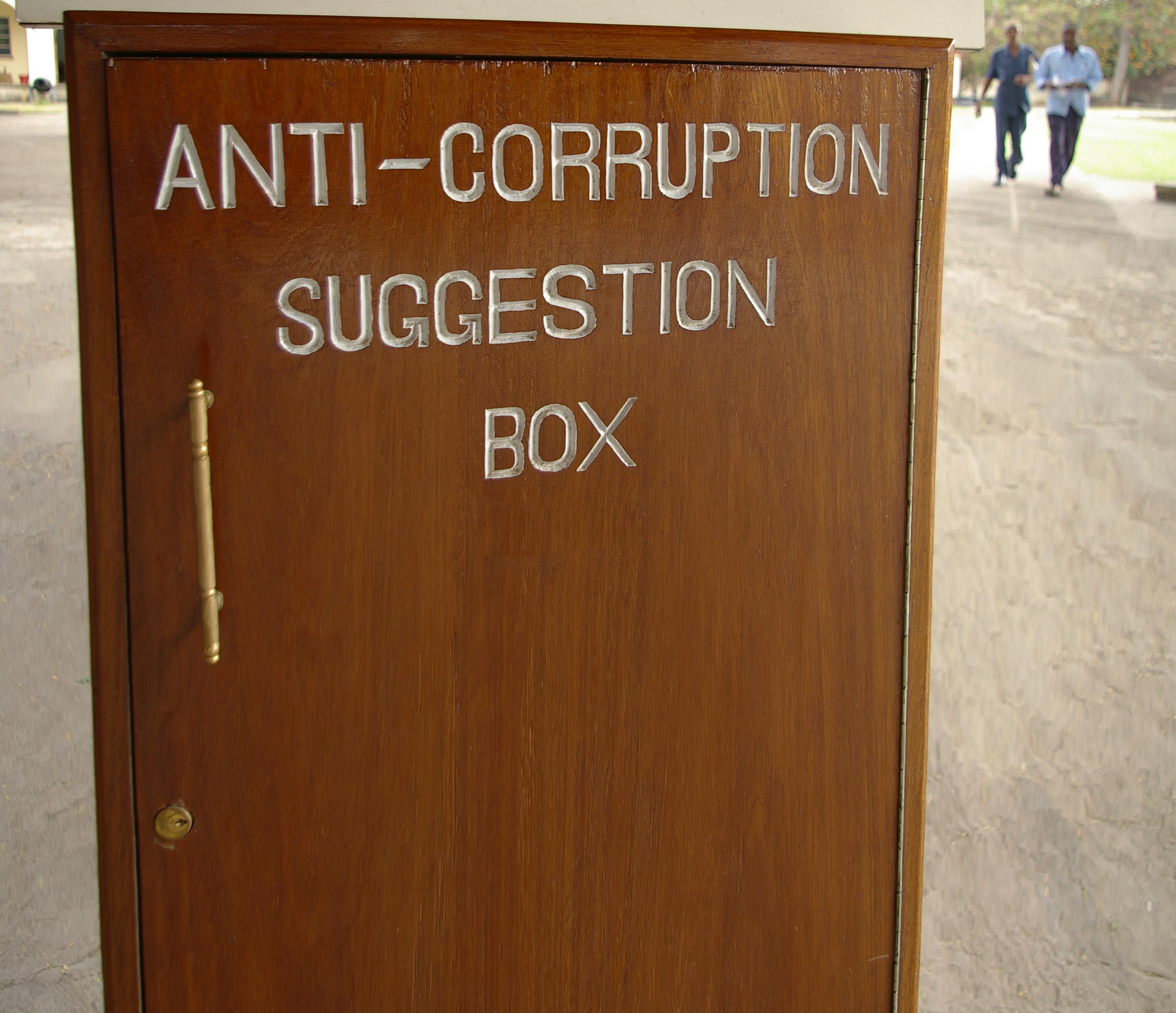Main points
- Corruption is a complex and clandestine phenomenon, sustained by underlying drivers, entrenched interests, and power relations. Subsequently, evaluating anti-corruption interventions presents a myriad of challenges.
- Evaluation methodology must consider the difficulty of accurately measuring corruption and changes in corruption; stakeholders’ potential reluctance to discuss the topic honestly and openly; the problem of proving causation and contribution; the time taken to achieve an impact; and the likelihood of unintended consequences and backlashes.
- Conventional anti-corruption approaches have not consistently yielded anticipated results. Assessment of effectiveness, impact, and sustainability should therefore include whether the intervention aligns with the latest and local thinking on corruption and anti-corruption measures.
- Evaluations can contribute to filling the anti-corruption evidence gap. It is possible to carry out a high-quality impact evaluation, even with budget and data limitations, by appreciating the range of methods available – including those particularly appropriate for complex interventions.
- Evaluations that focus on impact and sustainability should gauge whether the anti-corruption intervention contributes to wider, and deeper, change. With widespread or systemic corruption, eliminating a specific corrupt practice is not enough. The root causes of corruption need to be addressed in order to bring about systems change.



